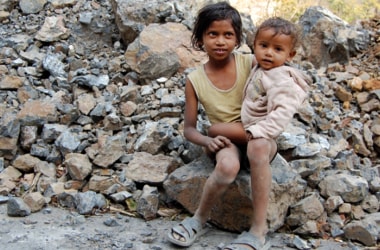
According to the 2016 Indian Exclusion Report (IXR) released by the Centre for Equity Studies (CES), in terms of exclusion from access to public goods, Dalits, Adivasis and Muslims continue to remain the worst-hit communities.
The report has found out that the same historically disadvantaged groups such as Dalits, Adivasis, Muslims, and persons with disabilities and age-related vulnerabilities continue to remain as the most severely and consistently excluded groups of the society.
The 2016 IXR Report determines exclusion by taking into account four public goods, namely, pensions for the elderly, digital access, agricultural land, and legal justice for under-trials.
With the respect to the criteria of agricultural land as a public good, the report has found that the landowners to be invariably belonging to the upper castes, cultivators to be belonging to the middle castes.
Dalits and Adivasis remain largely as the agricultural workers and landlessness was highest among Dalits (57.3%).
Also, 52.6% of Muslims and 56.8% of women-headed households were landless.
In addition, Adivasis constituted around 40% of all those displaced by the developmental activities.
The report has highlighted that the Land reform efforts have not benefited Dalits, women or Muslims significantly.
The land holdings of Dalits, Muslims and women were found to be meagre in size.
Also, it has noted that the Land allotments to SC/ST households were not implemented efficiently. Internet reach
The report has observed that even though India has been ranked among the top five nations in terms of the number of internet users, almost 1.063 billion Indians were found to be offline.
It has cited poverty and geographic location to be the two major barriers to digital access.
The report has also cited the reluctance on the part of government to be a signatory to a non-binding UN Human Rights Council resolution to protect human rights on the Internet.
UNHRC: Know More- Abbreviation : UNHRC
- Formation: 2006
- Type : United Nations System inter-governmental body
- Head: Joaquín Alexander Maza Martelli, Council President
- Parent organization: United Nations General Assembly
- Website: www.ohchr.org